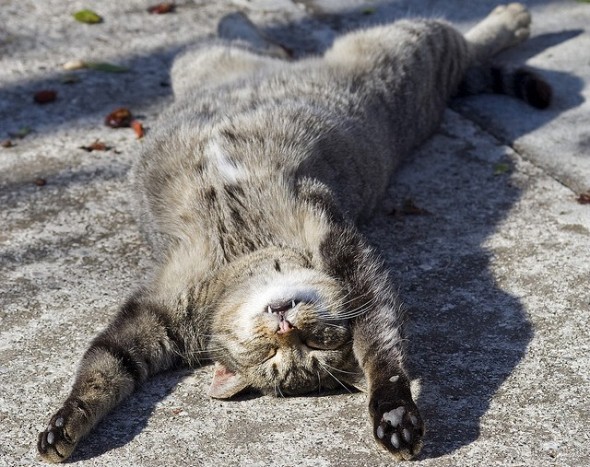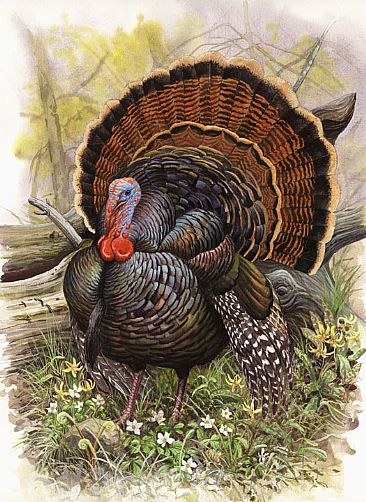
My US readers are preparing for Thanksgiving, the traditional harvest meal to celebrate family and friends. And most of us that sit at the Thanksgiving table will probably want a serious nap after eating. While the tryptophan in turkey is often blamed for this holiday nap effect, actually it’s more complex than that.
What is tryptophan? It’s an essential amino acid. Turkey has tryptophan. But so do the buttered biscuits, the cheese, the deviled eggs, and Aunt Bethany’s famous garlic mashed potatoes. Other meats like chicken, ham, fish and beef are high in tryptophan, too. It’s well represented in the dessert category, as well, including chocolate cake, pumpkin pie and banana fritters.
But all this tryptophan is not directly responsible for the family exodus from the dining room to the den. Actually, that’s probably due to old-fashioned carb-loading.
Here’s how it works. All those carbohydrates spike your insulin levels. This stimulates the uptake of large amino acids in the bloodstream — except for tryptophan. This gives you a suddenly high level of tryptophan in the blood, which crosses the blood-brain barrier and enters the central nervous system. From here all that excess tryptophan is synthesized into serotonin. Much of this serotonin is further transformed by the pineal gland into melatonin–and it’s the melatonin that brings on the snooze.
A natural jet-lag remedy
The convenient thing about melatonin is that it appears to be a natural jet-lag hang-over cure. So if you’ve taken a red-eye to see your family over the winter holidays, make sure you have a tryptophan-rich bedtime snack on friday night too. This could be a small turkey sandwich, a cup of cottage cheese, or a glass of milk. Excess melatonin can decrease the time it takes to get to sleep as well as strengthen the architecture of sleep: so you’ll wake up less often in the night. People report feeling more energetic the day after they take melatonin as well.
Bizarre Dreams and Lucid Dreaming

What really interests me about the tryptophan-melatonin partnership is that they can bring on bizarre and vivid dreams. About ten years ago, dream researcher Tracey Kahan and associates from Santa Clara University ran a two-week study looking at changes in dream content after taking 6mg of melatonin supplement, compared to placebo. The melatonin-subjects’ dreams were analyzed to contain more “transformations of objects” and “overall transformations.” Kinda trippy.
There’s also a heavily documented link between melatonin and REM latency, the time between REM sleep phases, which is the stage of sleep most remembered dreams come from. Coming full circle, Tore Nielsen and company (2010) from the Montreal-based Dream and Nightmare Laboratory have noted an association between the REM sessions that follow long latency periods and the increased level of nightmares and disturbing dream imagery in general.
This REM effect therefore could make melatonin a potential aid for inducing lucid dreaming, albeit it bizarre and nightmarish lucid dreams. More weirdness in dreams means more chances to recognize “This is creepy and weird–hey, I’m dreaming. And I can fly!”
So is this really all by random chance that traditional harvest feasts involve carb-loading and tryptophan-rich foods, served for days-on-end with the seasonal sleep-overs of close family and friends? I argue that harvest feasts also function as dream incubation sessions. Our culture has set us up to live together, dream together, and share it all in the mornings — just like the old days, if only for a night or two, before we go back to our neolocal lives.
So when your aunt says, “More potatoes, hon?”, that’s an invitation to dream a little deeper tonight.
Yes, ma’am.
References
Kahan, T.L., Hays, J., Hirashima, B., & Johnston, K. (2000). Effects of melatonin on dream bizarreness among male and female college students. Sleep and Hypnosis, 2(2), 74-83.
Nielsen TA, Paquette T, Solomonova E, Lara-Carrasco J, Popova A, Levrier K. (2010). REM sleep characteristics of nightmare sufferers before and after REM sleep deprivation. Sleep medicine, Feb;11(2):172-9.
US Department of Health and Human Services: Melatonin for Treatment of Sleep Disorders
First Image Attribution (CC): Sleeping by kaibara87
Great post Ryan!
This was great! It really clears up confusion about tryptophan and melatonin and was very interesting.
thanks y’all!
update: I had two sleep paralysis experiences last night (after all my Thanksgiving carb loading and tryptophan gluttony). way cool!
This is great info!!! I would like to add that there is a drink that you can purchase at many local gas stations called Lean Slo-Motion Potion. It contains a high level of straight Melatonin. It can be found in the energy drink section, although, it’s a relaxation drink!
I am on a low carb diet, and on thanksgiving i only ate turkey And it made me very sleepy.
So it isn’t due too “carb loading”
And basically i only eat fish on my diet “sardines, Tuna, and herring”
And it does not make me sleepy.
But turkey does…
also My carb intake is always around 50 or below Mostly around 20 grams for 5 months so far
So I think you need to do some more research on this theory of yours:)
A good friend of mine had his first lucid dream on Thanksgiving night. I’ve been talking with him about LD for years, so I was stoked to hear he finally had one. He said the first thing he did was go flying, I still need to get some of the details on that. Also he was trying to find me, and calling out my name, hahaha!